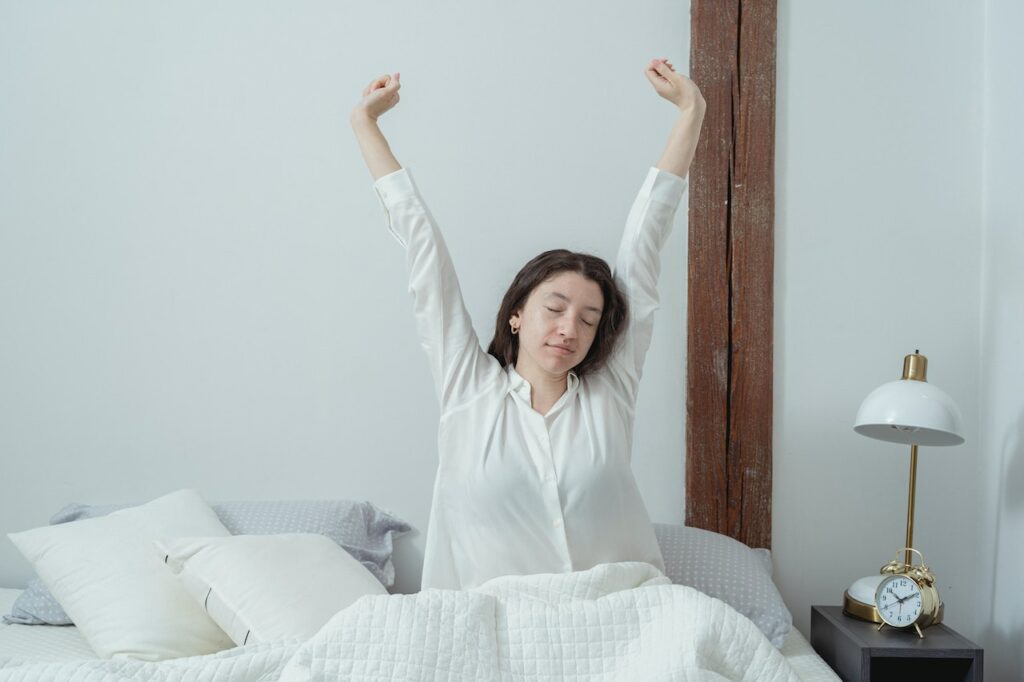The Importance of Sleep for Academic Success
Want a better grade?
Let’s get more sleep!
Sleep is essential for academic achievement as college students and general physical and mental wellness. Rest is required for the brain to operate correctly, and studies have shown that a lack of sleep can harm academic performance in various ways.
We know that college students are busy and it is not easy to do time management. We remember when we were college students, we stayed up late at night to do assignments. The next day, we were dying all day long because of a lack of sleep.
This article will review the importance of sleep for academic performance and how students may improve their sleep patterns to enhance their grades and general well-being.
The Importance of Sleep

We bet every college student loves sleeping or taking a nap! One of the most important benefits of sleep is its influence on physical health. According to the National Sleep Foundation (NSF), sleep is necessary to repair and rejuvenate our bodies tissues and cells. During sleep, our bodies produce cytokines, which are proteins that help the body fight infections, inflammation, and stress. Sleep deprivation can weaken the immune system and raise the risk of various health problems, including obesity, diabetes, cardiovascular disease, and cancer (NSF, 2021).
Sleep is also essential for our mental health. It is during sleep that our brain consolidates memories and processes emotions. According to a study published in the Journal of Neuroscience, sleep deprivation can lead to emotional instability and impair the brain’s ability to regulate emotions (Goldstein-Piekarski et al., 2015). Lack of sleep can also adversely affect cognitive function, including attention, concentration, and decision-making abilities.
In addition, sleep plays a crucial role in our daily performance. According to the NSF, getting enough sleep can enhance physical performance, improve reaction times, and increase productivity and focus throughout the day. In contrast, sleep deprivation can lead to fatigue, decreased alertness, and poor performance (NSF, 2021).
So, how much sleep do we need? The NSF recommends that adults aim for 7–9 hours of sleep per night, while teenagers and children require more sleep. However, the quality of sleep is equally important as the quantity of sleep. Factors such as sleep environment, hygiene, and disorders can all affect sleep quality. In short, everyone needs high quality of sleep including college students.
Sleep and Academic Performance

Sleep plays a crucial role in learning and memory consolidation. During sleep, the brain consolidates information learned during the day, forming new neural connections essential for long-term memory retention. Lack of sleep disrupts this process, leading to memory deficits and difficulty retaining new information.
Several studies have shown a positive correlation between sleep and academic performance. A study of college students found that those who reported better sleep quality had higher GPAs than those who reported poor sleep quality (Maheshwari & Shaukat, 2019). Another study of school students found that those who slept less than seven hours a night were more likely to have lower grades than those who slept for more than seven hours a night (Zeek 2015).
In addition, a lack of sleep might impact cognitive functions like attention, focus, and problem-solving ability. Research has revealed that those who don’t get enough sleep are more prone to errors and have slower response times (Killgore, 2010). Assignment difficulties, exam performance issues, and general academic achievement can all result from this.
Sleep Deprivation in College Students

College students especially tend to have sleep deprivation due to their academic and social demands. Around 60% of college students report poor sleep quality, and 30% have trouble falling asleep, according to the American College Health Association (ACHA, 2019). This is due to various reasons, including irregular schedules, coffee and alcohol consumption, stress, and electronic device use.
Irregular schedules and all-night study sessions are standard practices among college students, which can disrupt the body’s natural sleep-wake cycle. This can lead to difficulty falling asleep, waking up at night, and feeling fatigued during the day. Caffeine and alcohol consumption can also interfere with sleep quality. While caffeine is a stimulant that can keep students awake, alcohol may help them fall asleep but disrupts the natural sleep cycle, leading to poor sleep quality.
Stress is another major factor that can impact sleep in college students. The demands of academic life and social and financial pressures can cause stress and anxiety, making it difficult to fall and stay asleep. Additionally, electronic devices such as smartphones, laptops, and tablets emit blue light, suppressing melatonin production, a hormone regulating sleep.
8 Tips for Improving Sleep Habits

Fortunately, there are several strategies that students can use to improve their sleep habits and achieve academic success. Some of these include:
- Maintain a regular sleep schedule
Going to bed and waking up at the same time every day can help regulate the body’s internal clock, leading to better sleep quality. - Create a sleep-conducive environment
Make sure the sleeping environment is dark, quiet, and cool. Use earplugs, blackout curtains, and a fan or air conditioner to create a comfortable environment. - Avoid caffeine and alcohol
Limit caffeine intake and avoid alcohol, especially before bedtime. - Manage stress
Engage in stress-reducing activities such as yoga, meditation, or exercise to promote relaxation and improve sleep quality. - Limit electronic device use
Avoid using electronic devices such as smartphones, laptops, and tablets before bedtime. If necessary, use blue light filters or download apps that reduce blue light emission. - Get regular exercise
Exercise has been shown to improve sleep quality and duration. However, it is important to note that exercising close to bedtime may have the opposite effect, as it can increase alertness and make it difficult to fall asleep. - Avoid all-night study sessions
Plan ahead and schedule study sessions during the day or early evening to avoid disrupting the body’s natural sleep-wake cycle. - Take naps
Taking short naps during the day can help make up for lost sleep and improve cognitive performance.
TED Talks about Sleep
Sleep is your superpower by Matt Walker
Why do we sleep? by Russel Foster
Summary
As we discussed above, getting enough sleep is crucial for academic success and overall physical and mental health. Lack of sleep can negatively impact memory consolidation, attention, concentration, and problem-solving skills, all essential for academic success. College students are particularly vulnerable to sleep deprivation due to academic and social life demands, irregular schedules, and electronic device use.
Fortunately, there are several strategies that students can use to improve their sleep habits, including maintaining a regular sleep schedule, creating a sleep-conducive environment, avoiding caffeine and alcohol, managing stress, limiting electronic device use, getting regular exercise, avoiding all-night study sessions, and taking naps. College students can achieve better grades and overall well-being by prioritizing sleep and adopting healthy sleep habits.
In summary, sleep is essential to academic performance, and students must take the necessary precautions to ensure adequate quality sleep. Students may increase their cognitive capacities, retain knowledge better, and achieve academic achievement by adopting appropriate sleep habits.
If we put this into one sentence, if you want to get a better grade, sleep!
References
Goldstein-Piekarski, A. N., Greer, S. M., Saletin, J. M., & Walker, M. P. (2015). Sleep Deprivation Impairs the Human Central and Peripheral Nervous System Discrimination of Social Threat. The Journal of neuroscience : the official journal of the Society for Neuroscience, 35(28), 10135–10145. https://doi.org/10.1523/JNEUROSCI.5254-14.2015
Hershner, S. D., & Chervin, R. D. (2014). Causes and consequences of sleepiness among college students. Nature and science of sleep, 6, 73–84. https://doi.org/10.2147/NSS.S62907
Killgore W. D. (2010). Effects of sleep deprivation on cognition. Progress in brain research, 185, 105–129. https://doi.org/10.1016/B978-0-444-53702-7.00007-5
Maheshwari, G., & Shaukat, F. (2019). Impact of Poor Sleep Quality on the Academic Performance of Medical Students. Cureus, 11(4), e4357. https://doi.org/10.7759/cureus.4357
National Sleep Foundation. (2021). Why sleep is important. https://www.sleepfoundation.org/how-sleep-works/why-do-we-need-sleep
Zeek, M. L., Savoie, M. J., Song, M., Kennemur, L. M., Qian, J., Jungnickel, P. W., & Westrick, S. C. (2015). Sleep duration and academic performance among student pharmacists. American journal of pharmaceutical education, 79(5).
